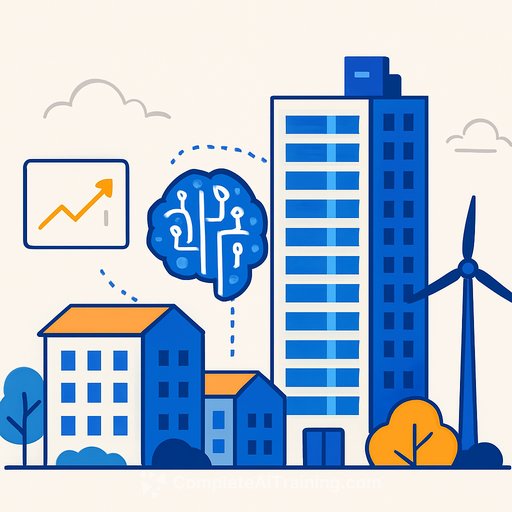Taiwan's Semiconductor Output Nears NT$6 Trillion with Government Support for AI and HPC Sectors
Taiwan's semiconductor industry is hitting new heights, with output nearing NT$6 trillion. This growth is driven by strong government initiatives focused on boosting artificial intelligence (AI) and high-performance computing (HPC) sectors. These efforts are positioning Taiwan as a key player in advanced technologies, which could have ripple effects across various industries including real estate and construction through increased demand for smart infrastructure and data centers.
China's SiC Wafer Upgrade Challenges Beijing's Restrictions
China is pushing forward with its silicon carbide (SiC) wafer technology, upgrading from 6-inch to 8-inch wafers. This move is testing the limits of Beijing's technology restrictions. The upgrade is significant for the semiconductor supply chain and may impact global markets, potentially influencing construction projects related to semiconductor fabs and industrial facilities.
Collaborations and Production Advances in Semiconductor Processing
- Tongtai and Contrel Partnership: These companies are working together to improve semiconductor wafer processing and advanced packaging techniques, which are crucial for increasing chip performance and reliability.
- CXMT's HBM3E Production: CXMT plans to mass-produce HBM3E memory by 2026, closing the gap with South Korean competitors. This advancement supports higher data throughput, benefiting AI and HPC applications.
Supply Chain Dynamics and Cooling Challenges
The iPhone 17 supply chain in China shows a mixed response amid India's rising role in manufacturing. Apple’s new iPhone 17 Pro features vapor chamber cooling technology, but suppliers face challenges meeting demand for this component. These developments could affect the electronics market and related construction of manufacturing and cooling systems.
TSMC's Expansion in Japan Strengthens Semiconductor Ecosystem
TSMC’s Japanese subsidiary, JASM, has started operations at its first wafer fab in Kumamoto, with a second fab under construction. This expansion exceeds expectations and supports over 200 new investment projects in the Kyushu region. The growth of semiconductor fabs in Japan could increase demand for construction services, specialized facilities, and local infrastructure upgrades.
Key Points for Real Estate and Construction Professionals
- Semiconductor industry growth drives demand for specialized industrial spaces, such as fabs and data centers.
- Government support in Taiwan for AI and HPC sectors may increase the need for smart building technologies and infrastructure upgrades.
- Cross-border collaborations and supply chain shifts influence where investments in construction and real estate are directed.
- Advanced cooling technologies like vapor chambers highlight the importance of integrating efficient HVAC systems in manufacturing facilities.
- TSMC’s expansion in Japan signals opportunities for construction companies involved in high-tech facility development.
For professionals interested in how AI and semiconductor trends intersect with construction and infrastructure, exploring specialized training can provide valuable insights. Consider checking out Complete AI Training's latest AI courses to stay updated on technology that can impact real estate and construction projects.
Your membership also unlocks:





